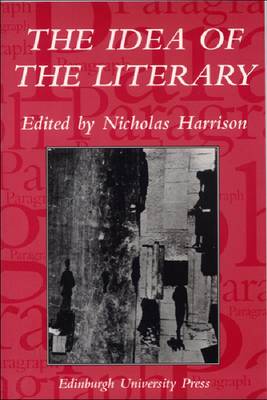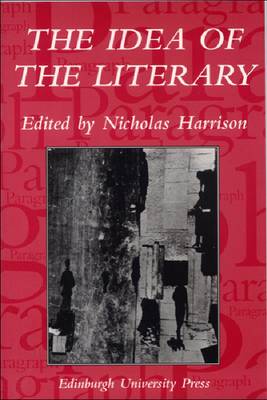
- Afhalen na 1 uur in een winkel met voorraad
- Gratis thuislevering in België vanaf € 30
- Ruim aanbod met 7 miljoen producten
- Afhalen na 1 uur in een winkel met voorraad
- Gratis thuislevering in België vanaf € 30
- Ruim aanbod met 7 miljoen producten
Zoeken
€ 47,45
+ 94 punten
Omschrijving
In many thriving areas of critical activity, critics have come to view with suspicion such notions as literary specificity or literary autonomy, and perhaps even literature. Critics in fields such as postcolonial studies, queer theory and feminist theory have re-examined - and attacked - the groundings of a traditional literary canon, and have raised questions about the basis and benefits of literary study. These intellectual shifts have taken place in a political and institutional context where those studying and teaching literature have repeatedly come under pressure to justify their activities.Against this backdrop there has been a powerful resurgence of interest in the idea of the literary and in literature's peculiar capacities. This collection features work by some of the most important and innovative thinkers and writers in the field, including a new poem by Assia Djebar. Together they force readers to reconsider the relations between the literary, the aesthetic, the ethical and the political, and demonstrate the reach and vitality of a renewed critical debate in which the literary is once more central to literary theory.Published as a special issue of the journal Paragraph (28:2)
Specificaties
Betrokkenen
- Uitgeverij:
Inhoud
- Aantal bladzijden:
- 146
- Taal:
- Engels
- Reeks:
Eigenschappen
- Productcode (EAN):
- 9780748623150
- Verschijningsdatum:
- 28/10/2005
- Uitvoering:
- Paperback
- Formaat:
- Trade paperback (VS)
- Afmetingen:
- 156 mm x 234 mm
- Gewicht:
- 258 g

Alleen bij Standaard Boekhandel
+ 94 punten op je klantenkaart van Standaard Boekhandel
Beoordelingen
We publiceren alleen reviews die voldoen aan de voorwaarden voor reviews. Bekijk onze voorwaarden voor reviews.










